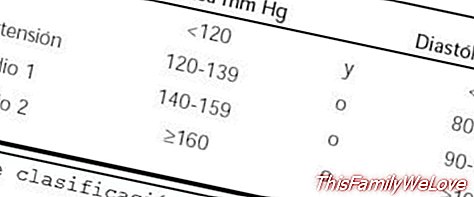The risk of high blood pressure: take it seriously
The problem of arterial hypertension You have to take it seriously, as it can bring serious consequences if not treated in time. A healthy life and correct habits in certain stages of life can prevent future complications in blood pressure.
When our heart beats, it pumps blood into the arteries and creates pressure in them. This pressure is what makes blood circulate throughout the body and is what we call blood pressure.
The arterial hypertension it is defined as having too high blood pressure, which depends on many factors (weight, age, sex, certain habits, etc.) and is diagnosed when a person is above 140 in the maximum and 90 in the minimum. Hypertensive crises (above 210 and 120) require immediate hospitalization, as they can severely affect the body. The real danger of hypertension is ignorance, since not receiving treatment, vital organs such as the heart, kidneys or eyes can be damaged.
Causes of high blood pressure
The causes of arterial hypertension are many and varied, that's why we must take measures and monitor:
- The tobacco. To the many problems that this habit brings, we must add the risk of damaging blood pressure.
- The coffee. Its abusive consumption can trigger hypertension; The same goes for other beverages that contain caffeine, such as tea.
- The alcohol. A daily intake of more than 40 g can increase blood pressure.
- To live a sedentary lifestyle or have an inadequate diet, with a lot of salt and saturated fats.
- Permanent stress It produces an increase in blood pressure.
- Tension must be monitored at any adult age, but after 65 there is a clear risk factor, because with aging the arteries harden and the passage of blood is difficult.
- Pregnant women should also take care of their tension, since due to the facility to accumulate liquids in this state, one can suffer a preeclampsia, a type of special hypertension.
- Obese people they have a high risk of suffering from the disease.
- The genetic factor. Monitor blood pressure if there have been cases of hypertension in your family (parents, grandparents ...). The genetic factor must be taken into account.
Consequences of hypertension in health
Prolonged hypertension does not always have consequences on the body, however, it is responsible for numerous heart diseases, since it requires extra work to the heart to distribute blood throughout the body. This continued effort can lead to heart failure or myocardial infarction in case the blood flow to the heart is interrupted.
The poor circulation of blood also affects the brain. The narrowing of the arteries can lead to a lack of irrigation in some part of the organ and result in a thrombosis that causes a cerebral infarction.
The heart and the brain are not the only organs affected by high blood pressure. The eyes, the kidneys and the lungs also suffer this evil, since the arteries and capillaries that irrigate them can break and fill them with fluid, giving rise to blindness or pulmonary edema.
How do you take the tension?
The arterial hypertension It is a disease that causes serious damage to the body and, however, is silent and produces no symptoms. Therefore, the best way to fight against it is controlling tension to prevent complications, in addition to adopting healthy habits.
When the blood pressure is measured, we are given a separate figure by a bar (for example, 140/90). The first number, the highest, corresponds to the pressure that the blood makes against the walls of the arteries when the heart contracts (systolic pressure), while the second number marks the pressure of the blood in the arteries when it rests between beats (diastolic pressure). Both are measured in millimeters of mercury (mm HG), that is, the height that the mercury reaches when it presses on it the force of the blood. On the other hand, when making the measurement, it is mandatory to make an overall risk assessment for each person, sick or not, to calculate the pressure figures that should be considered "safe" for her.

In the case of a person with normal tension, the figure marked will be less than 130 systolic pressure and less than 85 diastolic, if you mark a little more of these numbers it will be considered a high normal tension. However, hypertension begins at 140/90. With these figures, it is a mild hypertension, but you have to be careful because it can go further and get worse.It is considered serious when the figures indicate between 180 and 209 of systolic pressure and between 110 and 119 diastolic. Very serious is 210/120 or higher to these figures.
Prevention is the best system to avoid the fatal consequences that can lead to hypertension, therefore, it is good to go with some regularity to the pharmacy or the doctor to take our blood pressure and thus keep a good track of blood pressure .
Marisol Nuevo Espín
- Tips to moderate salt intake
- Preeclampsia: what it is, causes and symptoms




